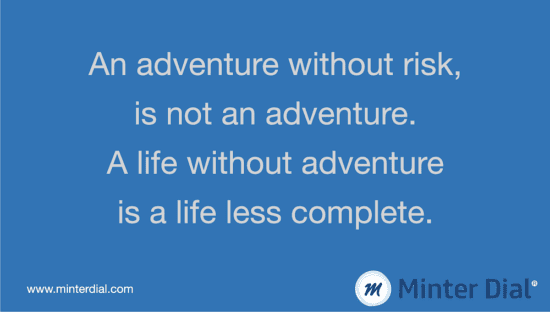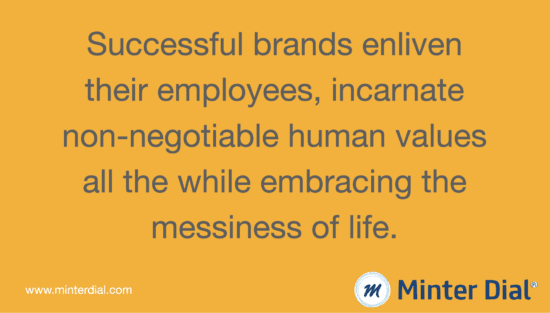Why are so many shying away from risk?
Have you noticed how risk-adverse we seem to have become as a society? Rather than tolerate risk, we’re far happier to talk about making things safe. I like this quote even though it is systematically wrongly attributed to Sir Winston Churchill and was never said by anyone famous (e.g. here).
“You have enemies? Good. That means you’ve stood up for something, sometime in your life.”
In fact, as Politifact researched it, no one significant ever uttered such a sentence. The most similar quote comes from an essay written by Victor Hugo in 1845, entitled Villemain (on p67):
“You have enemies? Why, it is the story of every man who has done a great deed or created a new idea. It is the cloud which thunders around everything that shines. Fame must have enemies, as light must have gnats. Do not bother yourself about it; disdain. Keep your mind serene as you keep your life clear.”
Whether it’s ever-tighter security requirements, endless small print on medication, news headlines that are frequently preceded with an advisory warning, or more prosaically a kettle or cup of coffee marked “Caution: May be hot,” we’re trying to make life so safe that we can all live longer, if duller lives… And the safer we make it, the less resilient I fear we are becoming. I call your attention to a provocative and powerful book written by Jonathan Haidt and Greg Lukianoff in 2018, “The Coddling of the American Mind,” which could also easily be applied to many western countries. The authors posit that parents and schools, through an overabundance of caution, created kids who are fear-ridden and more fragile. Hence, the sky-rocketing mental health conditions. Rather than give children the opportunity for unsupervised exploration and adventure, everything needs to be pre-vetted and monitored. While I am convinced that the new generations will apply their full force of creativity and resourcefulness, I do wonder about how the distaste for risk will impact marketing and brand building in the future. About the tolerance of risk, I love a saying that applies to (my) life:

If that couplet is about life per se, what are the ramifications for business (and brands)? I always smile at how the French translate “Venture Capital” (VC) to “Capital Risque.” Rather than think positively of the adventure, we prefer to worry about risk. Not only do I believe that removing risk makes for a boring life, in business it makes for a plain vanilla positioning, bereft of exhilaration. Avoiding risk necessarily implies greater redtape and bureaucracy. The lawyers and financial analysts are seemingly winning that battle. Of course, it’s important to be responsible and to take fiduciary matters seriously. But, it feels like many brands have succombed to the trend, if not the pressures, to play it safe. There are, I hear you say, many treacherous topics out there, so better safe than sorry, no? For instances where the stakes are high, there must be adequate protection mechanisms. But in low stakes, such as selling widgets, fragrances or clothing, there’s no reason to be so cautious. From my vantage point, I see more brands that ought to be sorry for being soooo safe. If you’re working on a brand (including your own personal brand), are you satisfied on being like everyone else? I hope not. Every brand should find its mark, its point of difference, and honor a substantial significance.
Branding gets personal
I’ve long held that brands must get more personal, to move away from a just-get-the-small-print-right attitude to having a certain set of values that are limited (to 3) and well-defined, as well as specific types of visible behavior and vocabulary. But when it comes to holding political opinions, standing up for someone or something even a little controversial can seem rather existential in proportion. In the Hugo quote, the risk is about developing enemies. But is that really so bad? I don’t necessarily subscribe to a zero-sum game (i.e., it’s useful to strive for a win-win), but I do believe that it’s not advisable to go through life trying to avoid all enemies. For starters, by accommodating everyone else, you’ll lose yourself. Just as any human being can seek to leave their mark, so must brands find a way to set themselves apart. And to the extent every brand is run by people sellling goods and services to people, it seems relevant to make your brand stand up and stand out, even if that means having enemies. That’s because successful brands enliven their employees, incarnate non-negotiable human values all the while embracing the messiness of life.

Can or should brands humanize?
I have had many conversations with brand marketers over the years around the ability for a brand to ‘engage’ with its customers. In her book, “Conversations that Connect,” Brooke Sellas (who’s been on my podcast) explored how brands can create emotional connections by having more personal and even spontaneous interactions and conversations. In most instances, I note that this ability to connect depends on the quality of the human beings behind the keyboards or manning the phones for the brand. Of course, we can try to create policies and protocols, enhanced by trainings, but at the end of the day, you can’t train people to have personality, you can’t teach a sense of humor, you can’t order individuals to have patience or trust, and just be lovely…
In search of relationships…
To what extent does your brand encourage its employees to enter into relationships with its cutomers? Some customers — especially in the B2B environment — do want to have more interactions with the brand, above and beyond the simple transaction. After all, brands are run by human beings and there’s no reason that brands shouldn’t attempt to create relationships with their customers, beyond simply the purchase of the good or service being offered. However, finding that voice and being able to farm out that tone and demeanor across the entire organization is a difficult task, particularly as the company grows (and goes overseas). If one of the keys for a brand to thrive is to be consistent, that doesn’t give it license to be boring and monotone. Au contraire, it will require the allowance for a certain character. But how far should a brand go in promoting personality? In a world where there are greater and greater calls for transparency and authenticity, brands will need to be strategic about the intended voice. Brand marketers will be hard-pressed to know where the line stands between opening the kimono and exposing all and having a consistently corporate stance. I’ve long felt that one of the most important attributes of a brand marketer is to have courage and strength of conviction. For example, nowadays, brands are often expected to have a viewpoint on political matters, especially on anything to do with race, gender and sexuality. But just towing the party line and/or copy-catting other brands with one or other hashtag won’t cut it, especially not from within, for many employees.

Photo by Rupert Britton on Unsplash
Purpose and standing for something
Much has been bandied about around brands having purpose. And, if you know my writings, you’ll know that I’m a believer in having a bigger purpose. I’m a proponent of brands seeking to define and follow a deeper raison d’être than merely to exist or make shareholders wealthy. Having a strong purpose — or a defined North Star by which to navigate — allows for the brand to differentiate between the must-have and the nice-to-have investments of time and money. A strong purpose means having a backbone, having the courage to stand for your convictions and, thereby, to stand out. It’s not always an easy place. I caution that the more the purpose is ‘obvious’ the more likely it’s vague, poorly interpreted and doesn’t help guide the business. Further, for companies who offload purpose into their charitable donations, that’s essentially a veneer approach because it doesn’t speak to the core business. A real purpose relates to what you do as a business (versus giving x% of profits to one or other charity). Moreover, a strong purpose will help you to take on risk.
In conclusion, brands need to know how better to evaluate and embrace risk. Trying to please everyone, all the time, and everywhere is a recipe for disaster (and for running out of resources very quickly). In today’s politically charged and uncertain world, it takes a solid amount of courage to go against the mainstream narratives. Bottom line: a brand that doesn’t take risks will eventually fall into the morass of mediocrity. My message to brand marketers: You need to stand out and stand up for something more important than your bottom line. If you don’t, you’ll eventually merge into oblivion. I leave you with a salient question — and I invite you to add your answer to the comments:
If you — or the company you work for — didn’t exist, how would the world be worse off?











